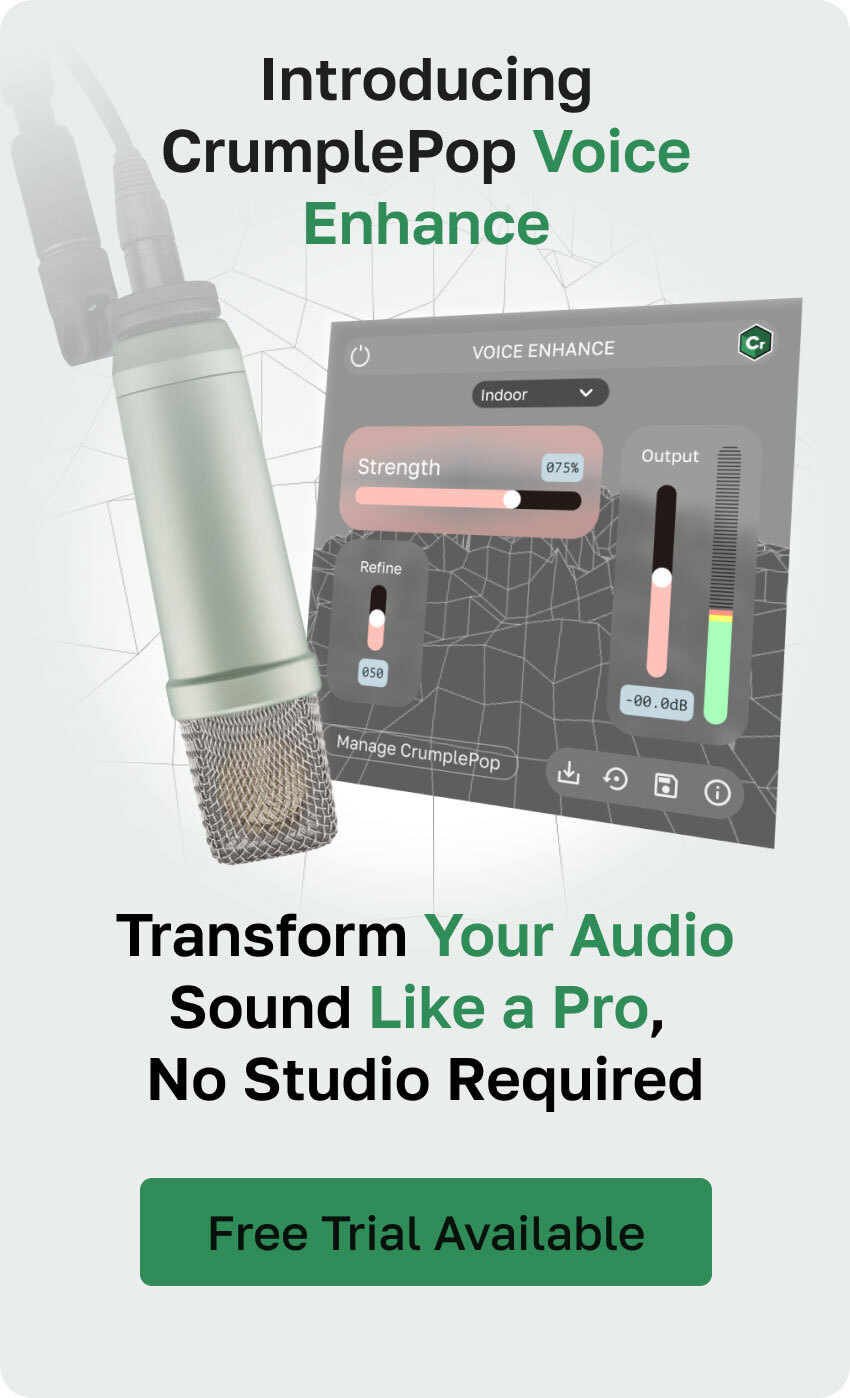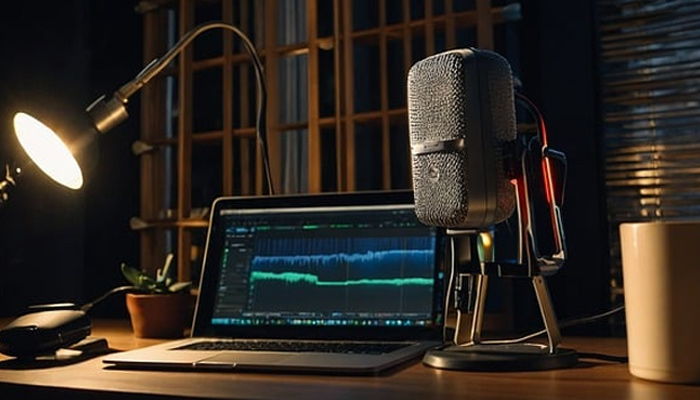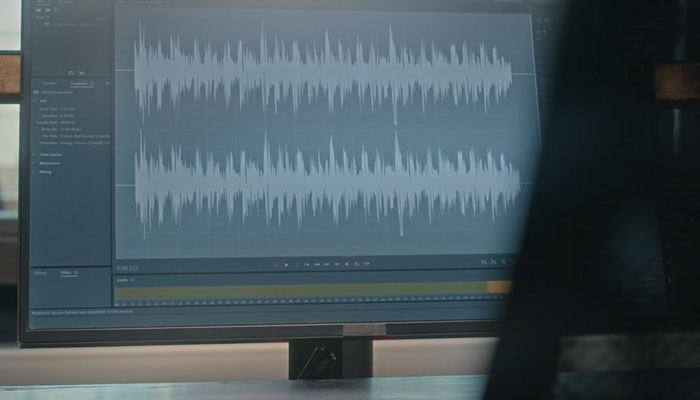Logic Pro X is undoubtedly one of the best DAWs in the game. For decades, it’s been the weapon of choice of musicians, producers, and engineers alike, thanks to its intuitive workflow and powerful tools for mixing and mastering audio.
This popular digital audio workstation features a plethora of stock plug-ins and samples that will help you start making music in no time. However, you may not find the sounds and effects you’re after in the Logic Pro X sound library.
Luckily, Logic Pro X allows you to add third-party plug-ins without any issues. This is a fantastic feature you should make the most of, especially if you’re switching to Logic Pro X after using different recording software. Whether you are home recording or working in a studio, the results are impressive.
Today I’ll look into what I think are the best plug-ins currently available for Logic Pro X. I selected a mix of free and paid Logic plug-ins, and although I’m a massive fan of free plug-ins, I tried to keep the list balanced.
Before we delve into the list of best plug-ins for Logic Pro X, I'll introduce this fantastic DAW and explain what plug-ins are, so even if you're a beginner, at the end of this article, you'll be able to go out there and choose the best plug-ins for your music independently.
Enough talking. Let’s get to it!
What is Logic Pro X?
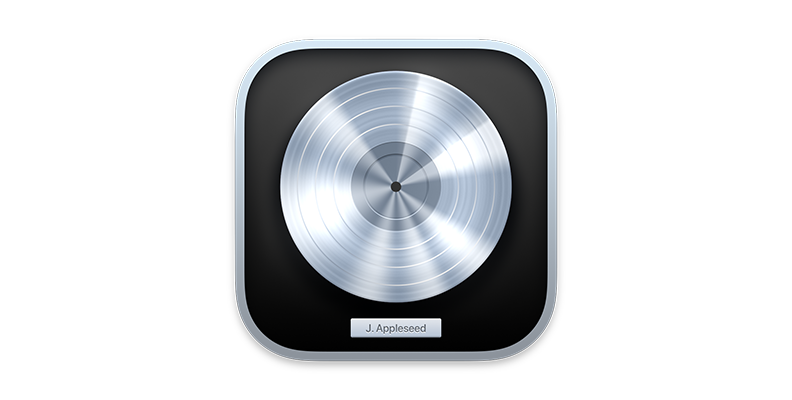
Let's start by introducing one of the most influential and versatile DAWs in the world. After Ableton Live, Logic Pro is the most popular digital audio workstation, and rightly so.
Its intuitive interface, extensive sound library, and carefully crafted automation make it a powerful tool in the hands of beginners and professional producers alike. The key studio edition word to bear in mind is simple - it's very easy to use.
Logic was created in the early 1990s by German software company Emagic. In 2002 it was acquired by Apple and became the most powerful audio workstation software system compatible with Apple’s devices.
Logic Pro can perfectly handle writing, recording, mixing, and mastering music; the immense sound library available to producers makes Logic Pro ideal for all music genres. You should consider using Logic Pro as your DAW if you have a Mac.
The Latest Logic Pro X
Emagic developed Logic Pro X with movie sound designers and filmmakers in mind. With an interface similar to Final Cut Pro X, this new version of Logic Pro features everything you'll ever need to handle sound effects for video, thanks to the intuitive movie feature and comprehensive effects to mix with.
Personally, I think it requires a bit of a learning curve to learn how to master Logic Pro X. Still, it’s worth it. This digital audio workstation is used by audio professionals across all disciplines, from movie sound designers to podcasters to music producers.
You can take your first steps in the audio design industry using Logic Pro X and stick with it until you become a professional audio engineer.
What is a Plug-in?
So, we explained what Logic Pro X is capable of. Now let’s see what a plug-in is and how you can use them to expand your sound library.
Essentially, a plug-in is software that works within another software. For example, audio plug-ins can’t work independently. They require a DAW to function.
There are hundreds if not thousands of different plug-ins that allow you to add virtual instruments or digital effects to your sound library.
You can find plug-ins dedicated to mixing and mastering music or ones that give you access to new musical instruments. AU plug-ins are one of the ways to expand and upgrade Logic Pro: by using AUs and VSTs not included in your DAW, you'll be able to create unique music that will make you stand out.
If you’re a mixing or mastering engineer, you can recreate the sounds of legendary recording studios or use analog equipment or other instruments that would cost you thousands of dollars in the real world.
In addition, many AU plug-ins are developed directly by the manufacturer of the authentic musical instrument or device, so you can rest assured the quality of the virtual instrument will be excellent.
What Are AU and VST Plug-ins For?
AU and VTS plug-ins expand the sound library at your disposal when creating, mixing, or mastering new music.
Before the digital revolution, you’d have to rely on a physical analog instrument or synth to get the audio you envisioned. For obvious reasons, this meant that not everything was available to everyone.
Today all you need is Virtual Studio Technology (VST) or Audio Units (AU) plug-ins that can emulate the way a physical instrument sounds and incorporates them into your favorite DAW.
Three Different Plug-ins Categories:
Instruments
These plug-ins emulate the sound of a real musical instrument and allow you to use the sounds of even the most expensive synthesizers to make music with your DAW.
Effects
Plug-ins can emulate the sound of popular effects that you can include in your sound library. Imagine the AU/VST instrument as a guitar and the AU/VST effect as a pedal.
Examples of effects are a dynamic equalizer, reverb plug-in, space designer, frequency analyzer, vocal rider, and background noise remover.
MIDI effects
These effects are ideal if you use a MIDI keyboard or MIDI controller to make music as they can interact with MIDI data.
A plug-in that works with a MIDI controller to automate processes is always a boon but whether it works with a MIDI controller or other MIDI component the effects will be great.
How to Install an AU Plug-in
Installing a new AU plug-in varies depending on the plugin provider, the DAW you’re using, and your operating system. However, the procedure doesn’t differ too much.
- First, download the file containing the plug-in.
- Unzip and save the file in your AU Plugin library. If you don't know what a plug-in library is, you'll need to check your DAW's folder and find a sub-folder called AU Plug-ins or something similar. You can also run your DAW and find this information in Settings.
- Copy/Paste your new plug-in into the folder you identified. Make sure it's unzipped. Otherwise, it won't work.
- Launch your DAW and check your library to ensure your new plug-in is there. If it’s not, refresh your plug-in library if you can, or log out and start again. Your new plug-in should be there and ready to use if you followed each step.
How to Choose Paid and Free Plug-ins
Now that you know everything about AU plug-ins, all you have to do is go online and find the perfect AU plug-ins for you, right?
The problem is that there are gazillions of plug-ins, with more coming out each day, so choosing one becomes problematic.
For every type of sound you’re looking for, there are probably a few different alternative products in the market, which vary in price and quality. So, how do you get the right one for your needs?
There’s no simple answer to this, but I can tell you how I created my sound library, and perhaps my personal experience will help you choose the right plug-ins.
Keep it Simple
I wouldn’t say I like spending a lot of time looking for sounds. When I want to record something, I want to make sure all the plug-ins I need are available at first glance. I tend to use a limited sonic palette, which helps me stay creative and develop solutions using the sounds I have at my disposal.
Find Companies You Like
I also tend to rely on audio developed by two or three software companies. The reason behind this is that I want to optimize my time, and obsessively looking for specific sounds online means I’m investing more time in researching plug-ins than actually making music.
I don't want to openly promote software companies that developed the plug-ins I use because it may sound like they paid me to do so (which is not the case.)
However, in the list below, you'll find Spitfire Audio, which I think is a fantastic company that’s consistently produced some of the most versatile virtual instruments in the market and possibly some of the best free instrument plug-ins for Logic Pro.
Knowing that Spitfire Audio regularly releases new high-quality sounds simplifies my workflow and relieves me from the stress of looking for plug-ins elsewhere.
I suggest you do the same. Try out a few free plug-ins from different brands, and select a few brands that create sounds that align with your style.
As long as you don't find their virtual instruments limiting, I suggest you continue using them and focus on music production with the plug-ins at your disposal.
Ask Others
One last thing I want to suggest is to ask musicians and music producers you follow to share with you which plug-ins they use. I've done it a dozen times and almost always got an answer.
Generally, artists are eager to talk about music gear and tips for improving your sound. So, if you can’t find information online, just ask them. What’s the worst that could happen?
The Best Logic Pro X Plug-ins for Music Production
Below you’ll find a mixed bag of AU plug-ins for Logic Pro X, including free and paid plug-ins, as well as both AU effects and instruments. These are the ones that helped me shape my sound the most, but there are so many options out there that it’s impossible to create a list that would work for everyone and all music genres.
Nonetheless, the plug-ins below are some of the most beloved AUs, so regardless of your genre, they’ll be able to upgrade your sound quality.
CrumplePop Audio Suite
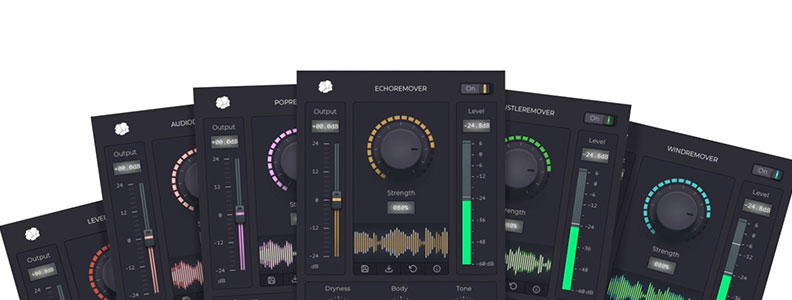
Our audio repair bundle is the perfect plug-in collection to take your sound to the next level, whether you’re a musician, podcaster, or filmmaker.
Perfectly compatible with Logic Pro X and with an intuitive drag-and-drop system, our Audio Suite can remove all the most common noise sources in your mix in no time.
Each of the eight plug-ins included in the bundle can identify and remove specific noise types, thanks to the advanced AI that can target certain disturbances while leaving the main sound sources untouched.
These plug-ins feature tools that easily remove background noise, reverb and echo (without the need for a separate reverb plug-in), clipping distortion, fan noise, wind noise, traffic noise, rustle noise, and plosives.
All the editing controls you’ll ever need to enhance your sound are included in this comprehensive and affordable package by CrumplePop.
Hear It For Yourself
Advanced audio AI removes noise and boosts your vocal quality.
Toggle it on/off to hear the difference.
Remove Wind
Remove Noise
Remove Pops & Plosives
Level Audio
Remove Rustle
Remove Echo
Remove Wind
Jupiter – 8
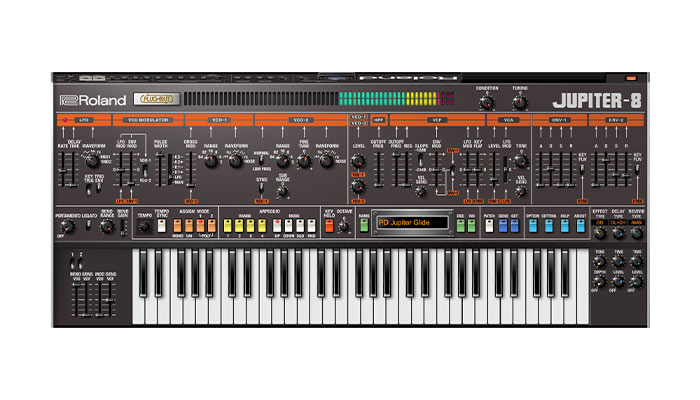
The Jupiter 8 is a legendary synth used by dozens of electronic music superstars, from Depeche Mode to ABBA, from Giorgio Moroder to Tangerine Dream.
Roland itself has faithfully recreated the iconic sound and versatility of this now extremely expensive synth, using their ground-breaking ACB (Analog Circuit Behavior) Modeling technology.
You can also download patches from Roland Cloud to keep everything up to date.
By getting this AU plug-in, you'll have the chance to explore these vintage keys that defined decades of electronic music with software that perfectly recreates the sound and feel of one of the most legendary synths.
Vitamin Sonic Enhancer
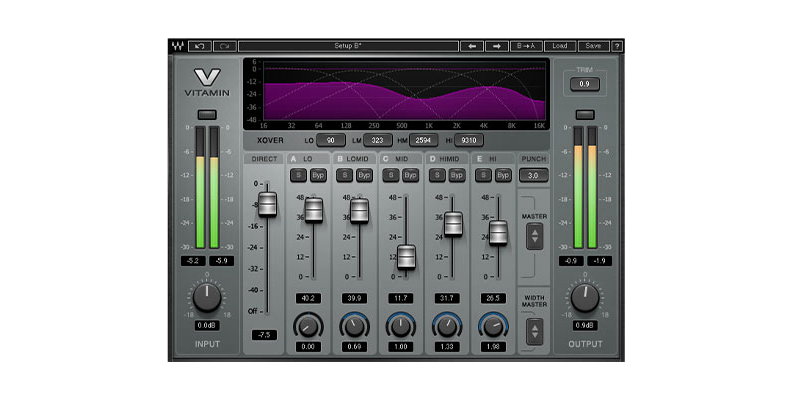
If your mix needs a little boost, here’s the perfect cocktail you need. With a combination of EQ, compression, and saturation, the Vitamin Sonic Enhancer is the ideal plug-in if you want your song to feel more energetic and vibrant.
During the mixing section, it can be used on separate tracks, either to give a push to your kicks or more clarity to your guitar or synth. You can also use it for your mastering to increase stereo width and make the song sound more enveloping.
F6 Floating-Band Dynamic EQ
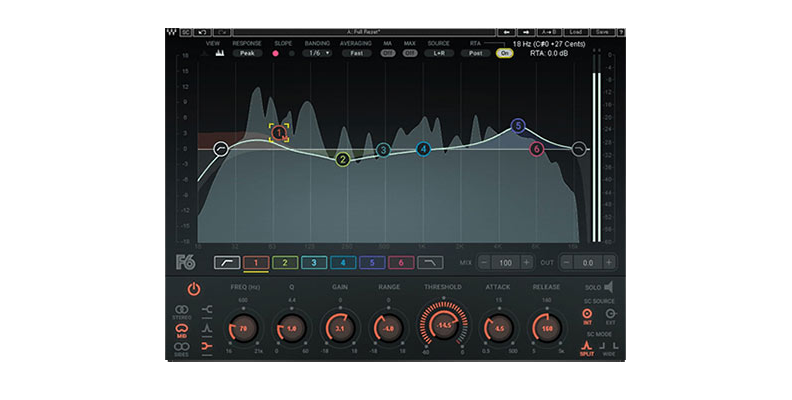
The most common issue when using an equalizer is the clashing of sounds magnified by the effect. The F6 Floating-Band Dynamic EQ is, as the name says, dynamic, meaning it’ll automatically select areas that require more delicate intervention and provide a balance that’s overall more natural.
The F6 Floating-Band Dynamic EQ can improve tonal balance dramatically by analyzing conflicting frequencies and separating them more thoroughly, thanks to its robust algorithm.
Spitfire Audio LABS

LABS is a collection of free virtual instruments developed by Spitfire Audio, a company specializing in cinematic and evolving audio textures and one of the best free plug-ins available.
The collection features a vast number of virtual instruments, ranging from acoustic piano to a wide selection of ambient layers. LABS will undoubtedly meet the needs of electronic producers looking for a free instruments plug-in to create soothing, enveloping sounds.
Although LABS will keep you busy for some time, don’t forget to explore the fantastic library offered by Spitfire Audio.
Here, contemporary music producers will find the best free plug-ins to turbo charge their compositions. Whatever instruments you require, this is a great place to look, and for a free plug-in, it is remarkable.
Black Rooster Cypress TT-15
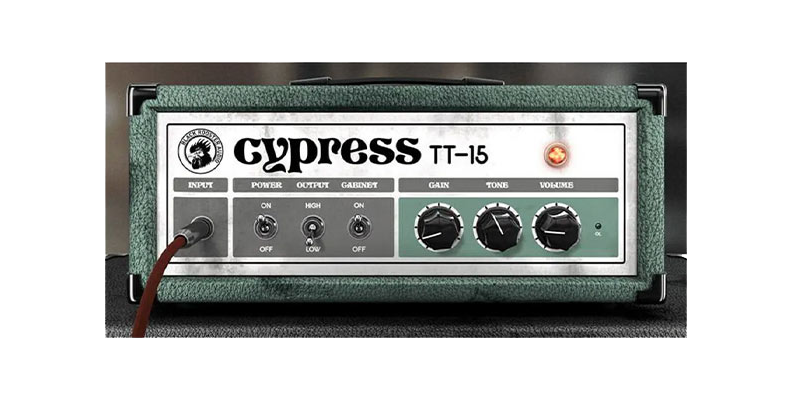
Here’s one for the guitar players: a digital reproduction of the legendary Orange Tiny Terror amplifier, perfect for your guitar solos and distorted lead guitars.
You can connect your guitar directly to your DAW via an audio interface, and the virtual amp will interact with it in real-time.
The results are amazing, especially with the lowest latency audio interface. Thanks to an AU effect that perfectly recreates this legendary amp, this is the best way to add depth to your sound.
XO by XLN Audio
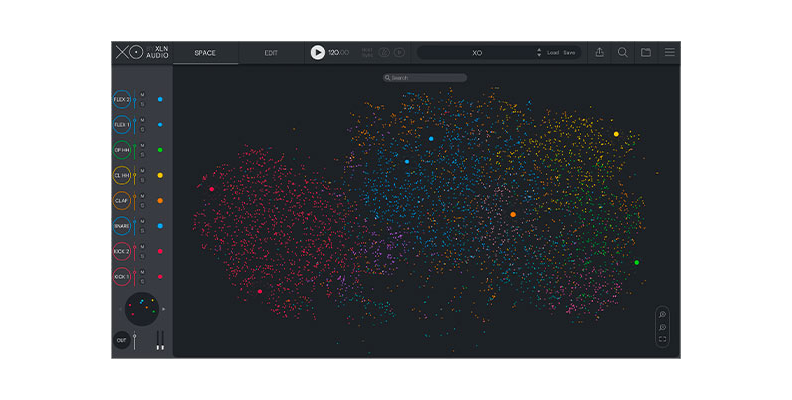
XO is a versatile and intuitive drum plug-in that’ll make your research for the perfect kick much easier. The way sounds and drum machines are cataloged and divided makes XO the ideal choice for anyone who wants to find the perfect drum sample for each track, thanks to an innovative and visually stunning interface. It's easy to sample in Logic Pro X and XO builds on that with its impressive approach.
Thanks to the powerful sequencer and editing tools, once you find the perfect sample, you can customize it and make it your own.
u-he Tyrell N6
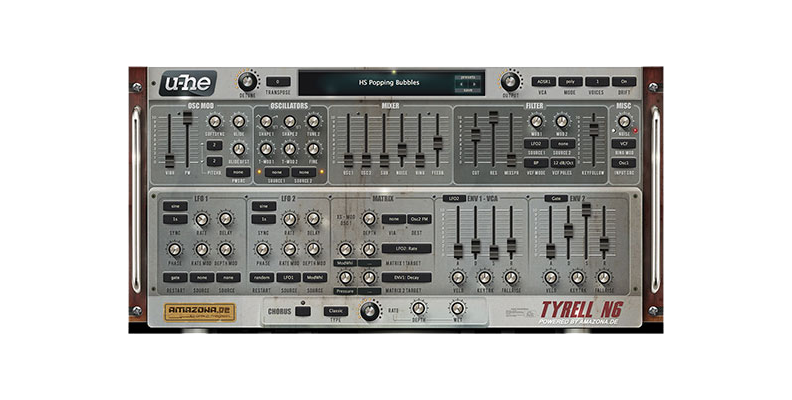
The Tyrell N6 is probably one of the most interesting free AU plug-ins available, with a sound that reminds me of the Roland Juno 60 and draws inspiration from many other real synths.
It’s packed with analog sounds and modules that will help you create your soundscapes flawlessly. You can download it from the German magazine’s website Amazona.de. Trust me; it’s hard to find anything remotely as good as this, let alone for free.
Elysium
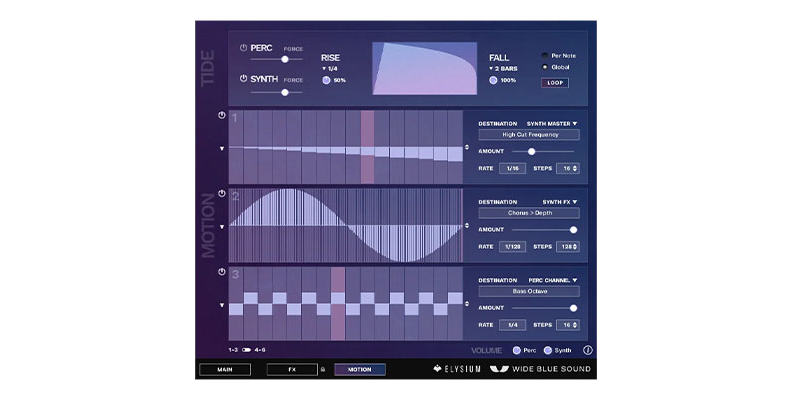
Elysium by Wide Blue Sound is an excellent option for Logic Pro users who want to create melodic audio soundscapes, thanks to its vast library of pulses, arps, and synthetic percussions, as well as tools such as pitch correction.
Elysium features an advanced phase sequencer section, which allows pitch correction and adjusting the accent, as well as action-based sequencing.
The various pitch correction, accent, and other controls available for each instrument enable full-range customization of your sound. The pitch correction is especially effective but all customizations work great.
Abbey Road TG Mastering Chain
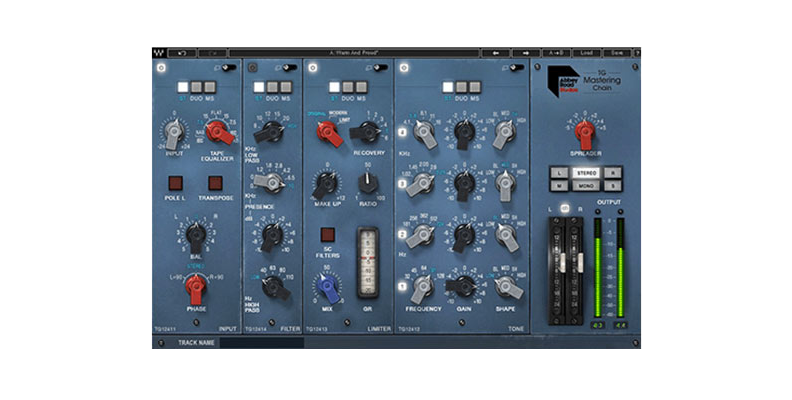
If you want your song to reach a vintage, analog warmth and loudness, look no further than the Abbey Road TG Mastering Chain. This is an AU effect that emulates the analog equipment of the legendary recording studio.
This effect empowers you with the instrumentation used to make the recordings that define the history of rock, like the stunning vintage eq collection and vintage compressor included in the package.
Not everyone is familiar with the mixing and mastering process, so the Abbey Road TG Mastering Chain features plenty of factory presets that’ll help you reach the sound quality you’re looking for.
Klanghelm IVGI
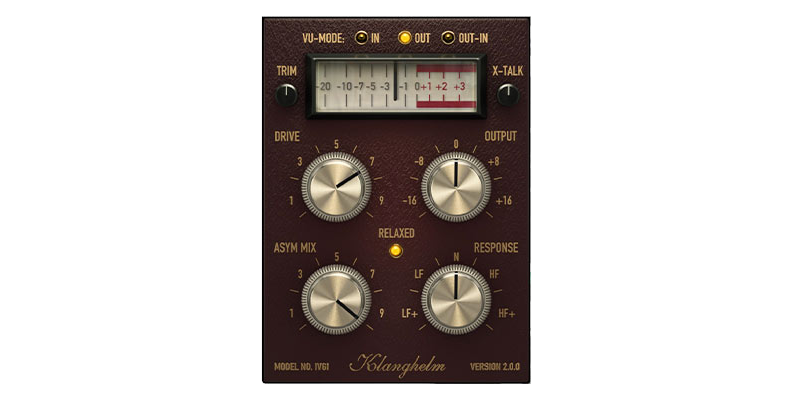
This is my favorite AU whenever I want to add saturation or distortion to my tracks. The sound feels analog and authentic while responding dynamically to the instruments it’s used on.
The Klanghelm IVGI effect is fully customizable with many tweaking options and provides perfect tonal balance even when used heavily.
You can use this AU plug-in to add energy and depth to your guitar or synth, but also on vocals and drum kits to make them sound warmer and more authentic.
Bassroom
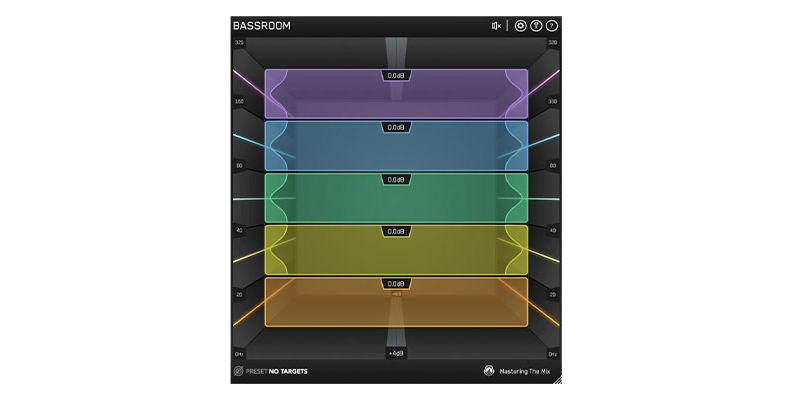
This excellent EQ will perfectly handle low-end frequencies during the mixing and mastering phases. Thanks to the genre-specific templates and EQ adjustments, you'll be able to achieve optimal bass sounds in no time.
If you want to publish a captivating and energetic song, you’ll need a robust and well-balanced sound.
The only way to achieve that is by enhancing lower frequencies while ensuring they don’t interfere with the overall song’s tonal balance. If you want your songs to be punchier, look no further than the Bassroom plug-in.
Final Thoughts
Regardless of whether you’re a music producer, engineer, or movie sound designer, you can create a comprehensive sound library in Logic Pro X for your professional projects, thanks to the variety of AU plug-ins you can find online, both free and paid.
Stick to Basics
You may find all these options to shape your sound intimidating. If that’s the case, I suggest you start by selecting only the essential plug-ins and leave the rest for when you feel the need to expand your sound.
Logic Pro already features an impressive array of stock plug-ins, so looking for more options online might not bring a tangible result to your music production.
Develop a Sonic Palette
If you’re a music producer, I’m sure you notice how often artists focus on a particular sonic palette to develop a new album or EP. This is because this approach improves your workflow, makes it easier to create new melodies, and doesn’t make you feel overwhelmed every time you look for inspiration.
I’m not an audio engineer, but I would assume the same goes for most mixing and mastering professionals. They probably use a limited number of audio tools they know perfectly well to shape the final sound.
Look for the Best Free Plug-ins
My final suggestion is to look for the best free audio plug-ins first, especially if you’re a beginner. The quantity and quality of free stuff out there are mind-blowing. I have no doubt you can start making music without spending anything, thanks to these powerful plug-ins for Logic Pro X.
You'll Pay for Excellence
On the other hand, if you're looking for the perfect recreation of a particular analog sound (I can think of rare synths, pianos, classical instruments, and so on), you'll likely have to pay for it to get something really authentic.
All in all, It'll be worth it, though. Your song will feel more authentic and real with plug-ins that perfectly reproduce the real instruments directly into your DAW.
Good luck, and stay creative!













